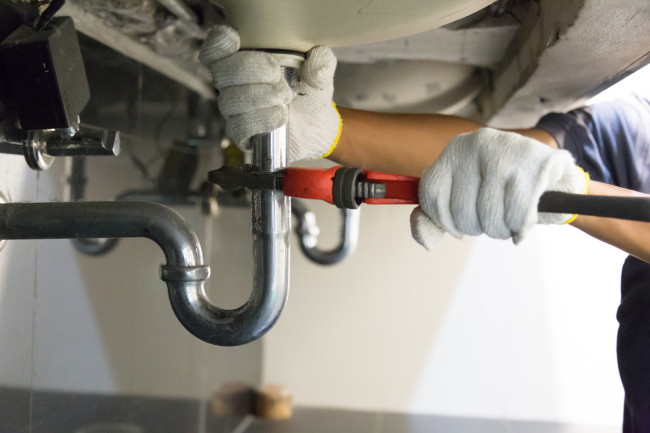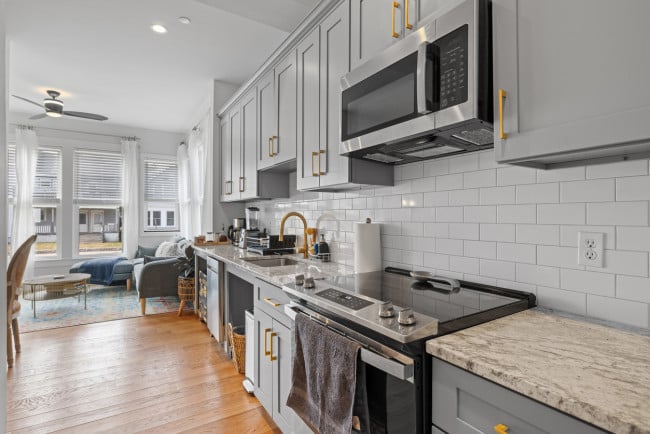6 tips on improving your relationship with your landlord

Like any relationship—it's important to have clear expectations. iStock
Most New Yorkers can share stories of spats with their landlord. Whether they are sparked by erupting toilets or rainfall in the kitchen or more minor issues, it's rarely an easy relationship to navigate. There’s an inherent imbalance between the tenant and the landlord.
“You’re coming from two different points of interest,” says Jay Fox, content director of Landlords NY, “so there’s always going to be tension there.”
There’s plenty at stake—your home, your security deposit, and possibly a reference letter for your next apartment. The best advice is to start the relationship on a good foundation, keep lines of communication open, build trust, and sometimes just suck up the small stuff.
1) Pick a good landlord
When you’re apartment hunting, consider an assessment of the landlord as part of your decision process. Teresa Stephenson, a broker at Platinum Properties, says, “You can often get a tenor of the landlord just through the application process.” She recommends being clear about expectations, so if there are reasonable fixes you want before you move in, put them in writing and make them part of your offer. “If there are problems they don’t want to fix, that’s a warning sign,” she says.
On the other hand, if you want to repaint just because you'd like a different wall color, the landlord is probably going to be put off. Stephenson says, “All discussions about what you want done to the apartment should happen before you sign the lease. No one likes to feel that the terms of the agreement have been changed when you’ve come to an accepted offer.”
2) Pay the rent on time
It's an obvious one, but landlords generally have to make mortgage payments on the apartment buildings they rent out and more often than not, your money is going towards these costs. Fox says paying on time is one of the best ways to ensure your relationship with your landlord doesn't come unstuck.
"Landlords have to meet their payment obligations otherwise they get charged interest. They are planning on their tenants paying them as close as possible to the 1st of the month. Paying on time creates a good sense of trust," he says.
3) Keep communication open
As your tenancy continues, there will be issues you need to resolve, whether it's a broken tile in the kitchen, noisy neighbors, or a plumbing problem. Fox stresses one thing, "Communication, communication, communication."
You should know what is and isn’t your responsibility. This will be outlined in the lease. Stephenson says "there’s nothing wrong with politely letting the landlord know and if you feel something falls under their responsibility rather than yours, asking if they are sure they have it right." She says it's important to remember they probably spend a lot of time dealing with complaints and problem tenants.
"It’s why they ask for so much paperwork in the beginning. They do have difficult jobs so if you can be pleasantly persistent, instead of making demands, that helps," she says.
When there's a gray area about what falls under wear and tear and what falls under damage, Fox recommends not putting off the conversation, even though it might be awkward. "A broken floor tile, for example, the best thing to do is to ask the landlord what they'd like you to do and either you can make the repair or you can work out a way together to try to mitigate the problem in any way possible."
4) Provide access when necessary
For non-stabilized tenants, this is fairly straightforward, but in regulated apartments, landlords often have problems getting access. Fox says tenants are often worried—and legitimately so—about construction harassment or the landlord seeing something that results in an eviction notice.
"Try your best to be available if the landlord needs to get in. That will go a long way. If there’s a mold problem because there’s a leak in 4F and they need to get into your apartment at 3F because they need to fix the problem and you don’t let them in, that’s going to quickly turn things toxic," Fox says.
Tenants in rent-stabilized apartments need to be cautious. Fox says that's why it's even more important to build a line of trust through open communication. Always ask any representative who is coming into the property if they are authorized by the owner.
5) Don't pick petty fights
While you might bristle when it comes to perceived injustices, think carefully about whether it's worth getting into a fight with your landlord. Fox recalls an issue where the motor in the refrigerator went out and the tenant claimed the landlord was responsible for $50 worth of food that went to waste.
“Obviously the landlord needs to mend the refrigerator,” he says “but the food? I’d suggest it’s better not to bicker. It’s more important to preserve the relationship with your landlord.”
6) Keep the apartment in good condition
Documenting the condition of the apartment when you move in is always a good idea. Leaving picture nails in the walls when you leave is fine but if you have pock marks from anchor studs, you might want to fill them with spackle or even walk through with the landlord to make sure you are both on the same page ahead of your departure. If you have pictures and videos of the apartment when you leave it could also help resolve issues without a situation escalating. You're also more likely to get that glowing reference letter if you leave the apartment in good shape.
You Might Also Like






























